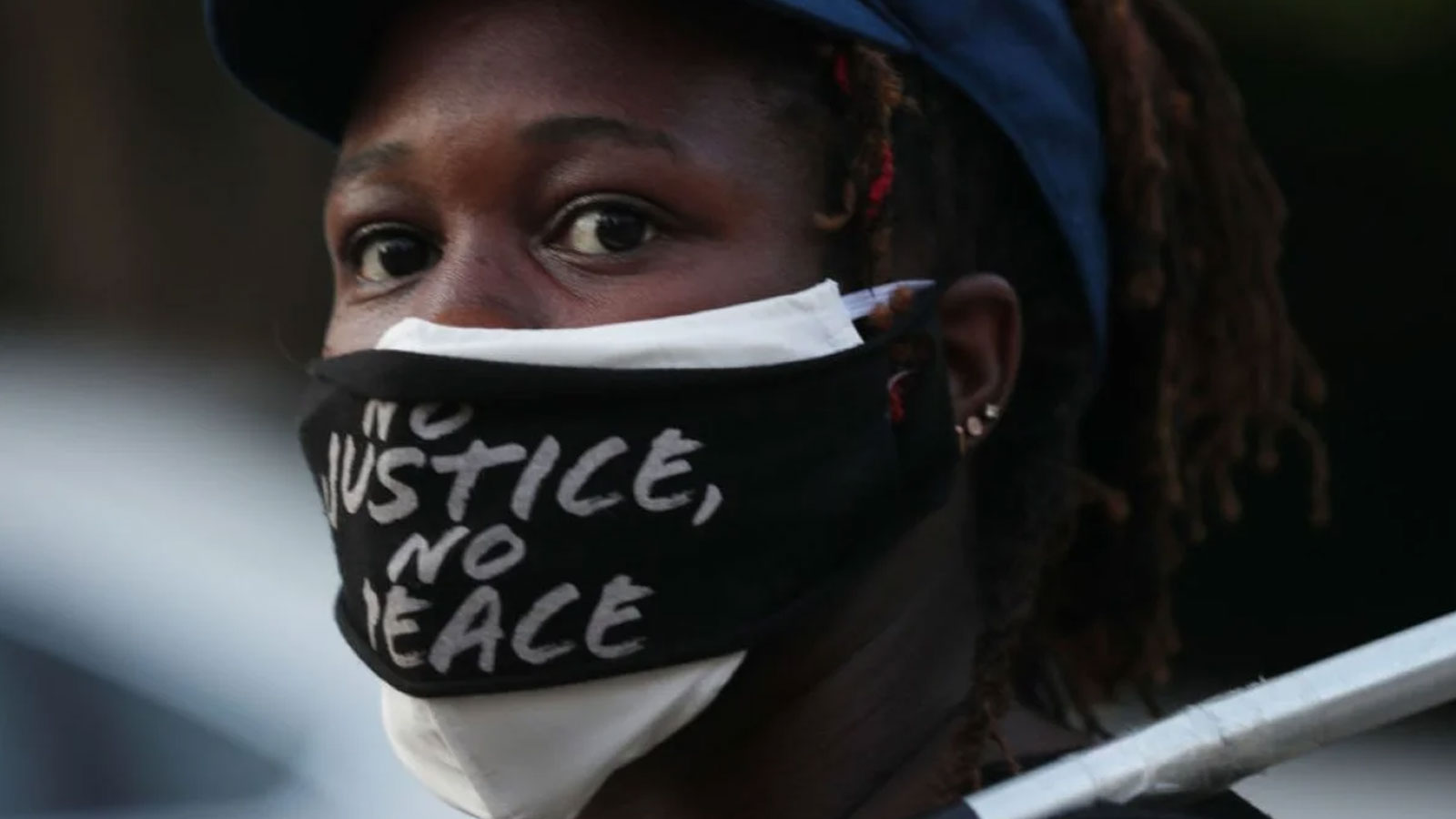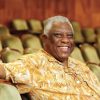After dozens of arrests on Sunday at the site of a planned ‘militarized’ police training center dubbed “Cop City,” Black protestors forge ahead with a day of action on Thursday.
Amid a planned week of action against the multi-million dollar police training center in Atlanta dubbed “Cop City,” the Atlanta Police Department arrested dozens of protestors on Sunday, inferring that the demonstrators were outside “agitators.”
Protests against the center, which began in 2021, have continued to face more intense and violent opposition from law enforcement in recent months, including the killing of 26-year-old environmental activist Manuel Esteban Terán, known as “Tortuguita,” in January.
Referring to the incident that led to the arrests of 35 people Sunday night, the APD reports that:
violent agitators used the cover of a peaceful protest of the proposed Atlanta Public Safety Training Center to conduct a coordinated attack on construction equipment and police officers. They changed into black clothing and entered the construction area and began to throw large rocks, bricks, Molotov cocktails, and fireworks at police officers.
However, some Black grassroots organizations in Atlanta have disputed the label, as they continue demands to close down construction of “Cop City.”
It is “akin to a southern segregationist narrative by calling organizers and activists ‘outside agitators,’” activist Kamau Franklin tells ESSENCE.
Franklin heads Community Movement Builders, a grassroots organization based in Atlanta’s Pittsburgh neighborhood, one mile from where Rayshard Brooks was killed by police in a Wendy’s parking lot in 2020. Franklin organized with other activists against the police killing and to advocate for a “peace center” in Brooks’ honor.
“This is the language that was used against Dr. King, that was used against the civil rights movement,” Franklin adds.
The APD posted mugshots of the detainees and also listed their home states, most of which are outside of Georgia.
However, Franklin points out that law enforcement widely arrested concertgoers at a music festival that drew out-of-towners supporting local protest efforts. He notes that officers are conflating these festival participants with those who have been involved in the ongoing local protests against the training center.
Sunday’s direct action that included destroying construction equipment being used to build the training center was also pinned on people who may have just attended the concert, Franklin shared.
“The police decided to overreact and break up the music concert and indiscriminately arrest people, and some of those people have been charged with domestic terrorism. And so the folks who were targeted for arrest–a lot of them, if not all of them– had nothing to do with the direct action itself.”
The weeklong protests follow calls from AUC students of Morehouse, Clark Atlanta, and Spelman to also shut down the training facility.
The $90 million site, which would involve clearing hundreds of acres of forested land, is expected to include “shooting ranges, a mock city for police training and a K-9 unit kennel, among other amenities, and would be a little less than 10 miles from the Atlanta University Center, which is home to four HBCUs,” Higher Ed reports.
“These are Spelmanites, Morehouse students and members and faculty of the community who agree that there is a problem,” Morehouse student Daxton Pettus said in a February forum at the men’s college. “We are here to discuss a system that is historically and continuously oppressing our people,” Pettus began his remarks.
“Cop City is a training center…planning to be built in a Black community in Atlanta,” Pettus noted. “The residents of Atlanta have dissented its construction since its approval in September of 2021. There have been three years of peaceful protests. But the people have not been heard.”
Franklin echoes Pettus’ sentiments. “Most of the organizers and activists who have been opposed to Cop City are either from Atlanta or have lived in and around Atlanta for a number of years. And so these are people who are very familiar with the politics and the policing of the Atlanta police on Black and brown communities.”
In February, over 60 Spelman faculty signed a letter denouncing the site and outlining its historically racist roots. “The potential site for Cop City is the Old Atlanta Prison Farm which was once a slave labor camp and, before that, the Weelaunee Forest of the Muscogee Creek people.”
The statement continues:
The violent histories of settler colonialism and slavery abound in this project which will contribute to militarization, deforestation and gentrification, making the lives of Atlanta’s Black population infinitely more difficult. The cancellation of Cop City would thus be a profound act of abolition and a step toward letting the world know that, in Atlanta, Black lives truly matter.
Despite the law enforcement narrative– and the Sunday night arrests of protestors– Black groups are joining Community Movement Builders in a “National Day of Action Against Police Terror” Thursday, March 9 to continue demonstrating against the site, including Black Voters Matter and Movement for Black Lives.
Atlanta plans to spend $90M to build a mock city for militarized urban warfare, practicing bomb detonations, tear gas deployment, and gunfire ranges.
Join us on March 9th at 6pm for a National day of action against police terror and say #StopCopCity! pic.twitter.com/I2OlydlELq
— Black Voters Matter Fund (@BlackVotersMtr) March 5, 2023
“Our organization Black Voters Matter is in Atlanta,” April England-Albright, the Legal Director of Black Voters Matter, shares with ESSENCE. “We are not outside ‘agitators.’ We live here. Our staff live in Atlanta [and] are impacted by decisions being made regarding Cop City. When you build a movement and get outside support from people outside the country, they try to demonize it.”
Albright refutes the notion that merely having external support is a drawback. Instead, she says it’s “necessary.”
Non-local protestors, she notes, “are very aware of the implications of building Cop City and what it could potentially mean in terms of policy that may go outside the walls of the City of Atlanta. They are not outside agitators. They are a necessary part to building a movement.”
“The only way you can respond to the state when they do things like this is to get as many voices involved in the cause. We’re asking for people to come and get involved” Albright stresses. “Make their voices heard now so that in years to come, if we’re able to defeat this here, it may not show up at their doorstep.”
Source: Essence















